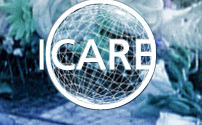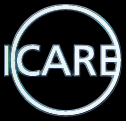 |
||
|
|
|
|
|
|
||
|
|
||
|
|
||
|
|
||
|
|
||
|
|
||
|
|
||
|
|
||
|
|
||
|
|
||
 |
||

Archived websiteWe regret to inform you that the co-founders of ICARE.TO, Suzette Bronkhorst and Ronald Eissens, both passed away in 2021. BudgetlinesGetting money for your organisation or projects is turning into an art. Where to find donors and sponsors? Are there budgetlines for what we want to do? On this page you will find the most current European budgetlines. Take note, this is a service we offer to you, we are not responsible for the budgetlines or the requirements! GENERALGuide to Funding and Participation in European Union Programmes in the area of the Soros foundations network's activities for Non-Governmental Organizations in Central and Eastern Europe and the Newly Independent States. Prepared by the Open Society Institute-Brussels. Updated version August 2001 http://www.osi.hu/brussels/guide2001/funding_index.html ANTIRACISMCommunity Action Programme to combat discrimination 2001-2006
Calls for Proposals and Tenders. ROMA & SINTIROMANI PUBLICATIONS PROJECT
call for proposals JOURNALISM, FREE PRESSAlfred Friendly Press Fellowships - Deadline February 1 - annually Six-month
working fellowships for non-U.S. print journalists from developing and
transitional countries with an emerging free press. The Fellowship covers all costs of program-related international and domestic U.S. travel, and provides a monthly stipend. The program begins in June with a two-week orientation seminar in Washington followed by five-month deployment to U.S. host newspapers and magazines. Alfred Friendly Press YOUTHFunding
opportunities for youth projects on human rights education 1. Introduction Financial
assistance in support of local pilot projects is important to the Youth
Programme on Human Rights Education because it will allow for
new initiatives
to be set up and will motivate supporting local NGOs and groups to
undertake action related to human rights education with young people. By funding
pilot projects on human rights education through the European Youth Foundation
For further information concerning
the European Youth Foundation
see http://www.coe.int/youth , the Directorate of
Youth and Sport
seeks to actively contribute to the
inclusion of human rights education
in youth work practice and to encourage innovative practices and partnerships,
both in formal and in non-formal education contexts. The
pilot projects will allow for a more visible and direct impact of the programme
at local level. They are a necessary complement to the rest of the
youth programme on human rights education and to the other activities of the
Directorate of Youth and Sport of the Council of Europe. Similarly,
the inclusion of pilot projects in the European programme may serve
to give them greater visibility and
recognition, as well as facilitating
the development of networks and of opportunities to
share expertise
and experiences. This will be done by means of the Directorate of Youth
and Sport publications and web sites. This may be completed
by an evaluation
meeting and a publication with examples of good
practice in 2003.
The evaluation and follow-up of the three-year youth
programme on human
rights education will consider to what
extent support to pilot projects
beyond 2002 may be continued. This
financial support to pilot projects should be seen as exceptional and limited
to the duration of the programme. The European funding
can not replace
the necessary local and/or national co-funding (in
money or in kind).
In this context, the assessment of applications will consider also the
feasibility of the projects. Priority
for funding will be given to projects which would otherwise
be difficult
to start up. Funding will not be given to projects that
have already
taken place. The
funding of pilot projects is also made possible thanks to
voluntary contributions
of Member States of the European Youth Foundation. 2. Criteria In order to
qualify for support, projects must: 1.
be directly related to young people and to human rights education or to a
specific theme addressed by the programme; 2.
be prepared, run and managed by a local association, institution or youth group
acting directly with children, young people or a specific target
group of the programme; 3.
have a clear educational or awareness-raising function; 4.
concern primarily participants under 30 years of age; 5.
have a participatory approach, from the conception to the evaluation; 6.
integrate intercultural learning in its educational approach; 7.
have an innovative character (in terms of methodology, target groups addressed,
etc.) 8.
be open to other partners of the youth programme on human rights education
and foresee using the resources generated through the programme (e.g. the
Manual on Human Rights Education); 9.
have a clear potential local impact while being open to European networks; 10.
have a European dimension, either by involving more than one country, and/or by
taking into consideration the European context; 11.
follow the basic educational principles of the Council of Europe's youth
sector; 12.
be realised betweenJanuary March 2003 andDecember 2002 March 2004. 2. Levels
of support Selected
projects can be funded up to a maximum of 7 600 €. 3. Payment
of grants The
administration of grants will be made
through the European Youth Foundation
and according to its standard practice: a maximum of 80% of the grant
will be paid following the confirmation of acceptance of the grant; the
remaining balance will be paid according to the rules of the European Youth
Foundation upon reception and approval of the
report and final accounts
of the project. 4.
Deadlines and applications All
projects must be implemented betweenJanuary March 2003
andDecember 2002
March 2004. The application forms must be submitted to the European Youth
Foundation by one of the following deadlines:1 November 2001 a)
1 February 2003 b)
1 May 2003 c)
July 20021 October 2003 The
decision shall be taken within two to three months of each deadline. 5.
Reporting Projects
being allocated financial support are to present a report within 2 months of
the completion of the project. This report shall include: a)
a complete financial report with proofs of expenditure, b)
a project report about the outcomes and dynamics of the project according
to the criteria listed above; c)
An indication of which members of the public will be reached through the project
and, where appropriate, a list of participants in the project, including
name, country of residence, nationality, age and sex; d)
Press cuttings, photographs and other examples of the achievements or results of
the project, preferably in electronic version. 6.
Procedure for applications, assessment and
decision-making on the projects The
applications for funding will be assessed
by the European Youth Foundation
(EFY) in consultation with the Steering Group of
the Youth Programme
on Human Rights Education. The secretariat of the EYF will give a recommendation
to the Programming Committee of the European Youth Centres and
European Youth Foundation, responsible for the decisions on the grants. All
applications must be submitted according to
the application form enclosed,
typed in English or in French. 7. Further
information: Further
information is available on the Youth Programme on Human
Rights Education
web site: http://www.coe.int/hre and on the European Youth Centre Budapest
web site: http://eycb.coe.int. Information about other funding possibilities
through the European Youth Foundation and
through the Solidarity
Fund for Youth Mobility is available
on the Internet at: For
specific enquiries about the pilot projects on human rights education, please
contact:
European Youth Centre Budapest
Zivatar utca 1-3
H-1024 BUDAPEST, Hungary
Tel: + 36 1 212 40 78
Fax. + 36 1 212 40 76
Email : eycb.secretariat@coe.int
(Embedded
image moved to file: pic08528.pcx) (Embedded
image moved to file: pic17709.pcx)
PILOT PROJECTS
on Human Rights Education
1. Name of the applicant organisation(s) Please supply brief updated information
on the organisation(s) separately, including main aims, structure,
activities, status, members, etc.).
2. Address(es) of the organisation(s) (including, fax, e-mail and web
site, if available)
3. Title of the project
4. Duration of the project (please give start and end dates of the
project)
5. Main venue/s (where will the project take place?):
6. Description of the project - Please provide clear and concise
information about: a)
the nature of the project b)
its aims and objectives c)
the principal elements of the programme d)
calendar and methodology e)
what the innovative nature of the project will be
7. Target group
a) To whom is the project addressed?
b) What will be the role of young people in the project?
8. Participants
Please provide details about: a)
The total number of participants involved or public to be reached b)
Their countries of residence and relationship to the organisation(s) c)
Their average age
9. Results
What do you expect to achieve with your project in relation to: a)
Human Rights Education b)
Young people's participation and autonomy c)
Local impact d)
Intercultural learning e)
Networking at European level
10. Follow-up - What follow-up do you envisage for your project?
10. Preparation - How, by whom and when will the project be
prepared?
11. Contacts
a) Name, function, address, telephone, fax and e-mail of the
person in the organisation responsible for this project;
b) names and function of other people involved in the
management of the project:
12. Budget
Please present, using the table below, an estimated detailed and
balanced budget of the total expenses and income of your project,
indicating the amount of the grant
requested from the Youth
Programme on Human Rights Education. The budget must be submitted
in Euro (€).
|
